#sewage pump maintenance
Text
Dive into our extensive guide on submersible sewage pumps and discover their essential roles in modern waste management. Learn about the different types of pumps, including grinder, effluent, and sewage ejector pumps, and their specific applications. Understand the benefits such as increased efficiency, quieter operation, and lower maintenance, along with crucial installation tips and common troubleshooting advice to ensure optimal performance and longevity.
#Submersible Sewage Pumps#Grinder Pumps#Effluent Pumps#Sewage Ejector Pumps#Sewage Pump Maintenance#Sewage Pump Installation#Efficient Waste Management#Residential Sewage Solutions
0 notes
Text
Each standing structure with human traffic has a sewage system installed. These systems do not need much attention, but a failure can cause a significant blunder. It is advised to have periodic inspections and maintenance.
For better guidance and simple maintenance, contact Packaged Pump Solutions. Professionals there will take your responsibility on their shoulders to let you live worry-free.
#sewage pump maintenance#sewage system maintenance#sewage pump#pps#sewer pump station maintenance#sewage pumping station
0 notes
Text
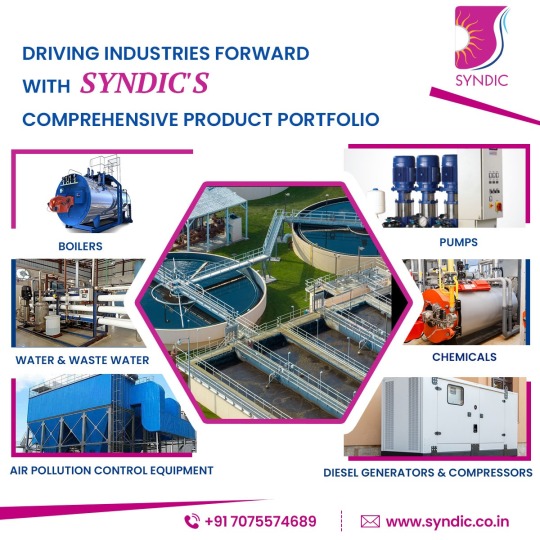
#Submersible Pump Dealers in Hyderabad#Boiler Repair and Maintenance in Hyderabad#Sewage Treatment Plants in Hyderabad#Chemical Suppliers in Hyderabad#Water Purifier Service Hyderabad
0 notes
Text
Life For Gaza: Each Cent Counts, Quenching the Thirst of Humanity in Gaza City
The Gaza Municipality is tasked with providing vital services such as water supply, waste management and sewage treatment. However, the widespread destruction in Gaza City has severely hampered the Municipality's ability to deliver even the most basic necessities to its residents. With limited access to water, the population faces a dire health and environmental crisis, especially affecting children.
By joining forces in this initiative, we cultivate hope and solidarity, fostering empathy and collaboration across communities while easing the hardships endured by those in Gaza. This collective effort reassures them that they are not alone in their struggle. The Gaza Municipality earnestly appeals for your support to help reinstate essential services, currently the foremost priority. In the northern regions of the Gaza Strip alone, over 500,000 individuals urgently require these services.
Where your donations will be directed:
- Water supply enhancement projects
- Maintenance of water wells
- Implementation of water desalination initiatives
- Management of waste collection and disposal systems
- Reconstruction of roads demolished during war
- Implementation of sewage water pumping and treatment schemes
- Execution of pest control and rodent eradication programs
1K notes
·
View notes
Photo
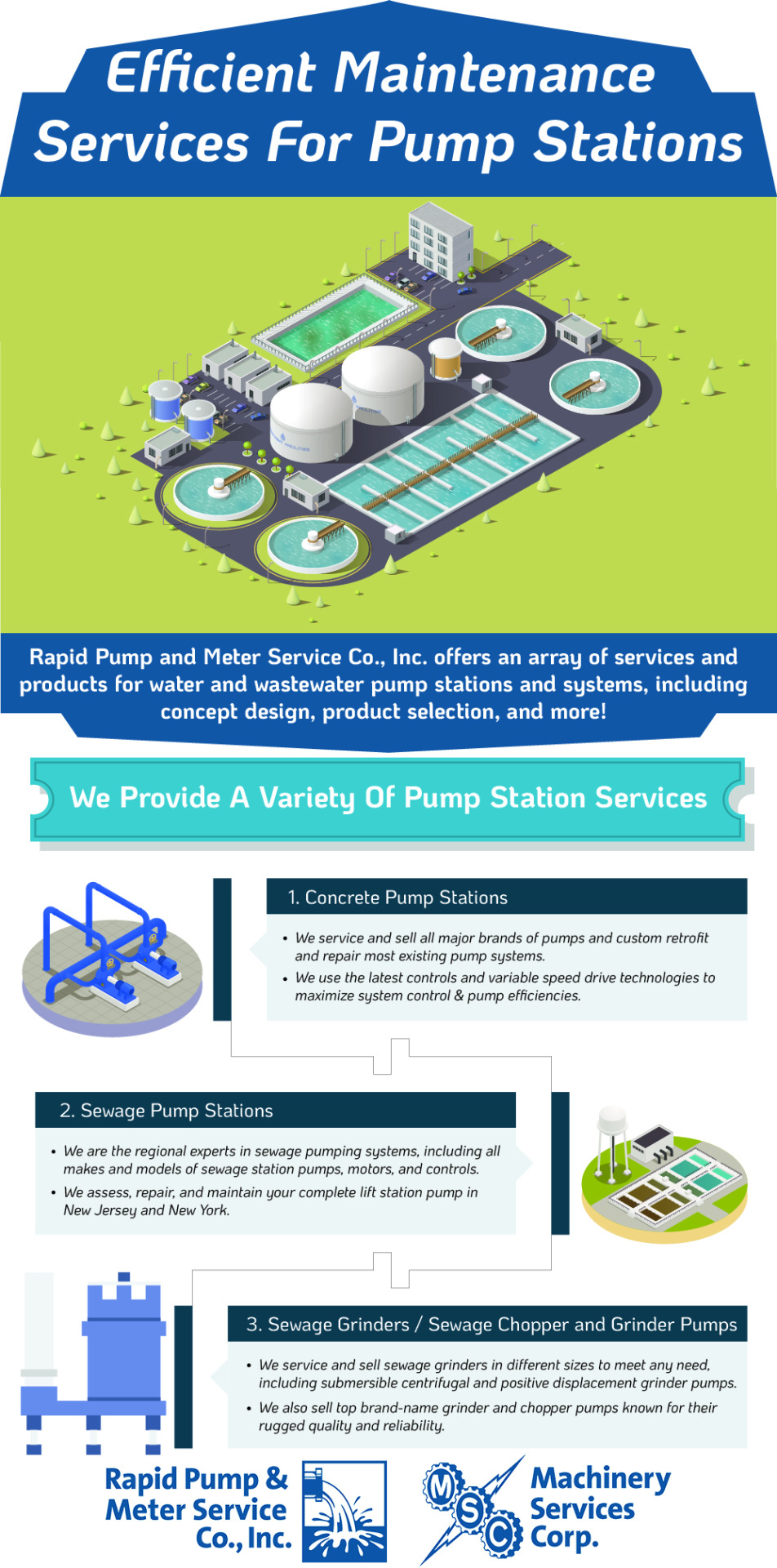
https://www.rapidservice.com/services/pump-stations/ - Rapid Pump and Meter Service Co., Inc. offers an array of services and products for water and wastewater pump stations and systems, including concept design, product selection, and more! Whether you need pump motor repair, centrifugal pump repair, lift station pump repair, sewage pump maintenance, or the installation of sewage pumps and booster stations in New York New Jersey, and Philadelphia, we have you covered.
We Provide A Variety Of Pump Station Services:
1. Concrete Pump Stations
2. Sewage Pump Stations
3. Sewage Grinders / Sewage Chopper and Grinder Pumps
We service all pump manufacturers, both current and obsolete. You can count on our team to deliver the fastest response, exceptional service, and workmanship on every project.
Rapid Pump & Meter Service Co., Inc. AND Machinery Services Corp.
285 Straight Street, Paterson, NJ 07509
5031 Industrial Road, Wall Township, NJ 07727
Phone: 973.345.5600
Fax: 973.345.0301
Email: [email protected]
https://www.rapidservice.com/
#Pump Stations Design#Pump Stations Installation#Pump Stations Repair & Pump Stations Maintenance#Concrete Pump Stations#Sewage Pump Stations#Sewage Grinders / Sewage Chopper and Grinder Pumps
0 notes
Text
The Gaza Municipality is tasked with providing vital services such as water supply, waste management and sewage treatmentl. However, the widespread destruction in Gaza City has severely hampered the Municipality's ability to deliver even the most basic necessities to its residents. With limited access to water, the population faces a dire health and environmental crisis, especially affecting children.
By joining forces in this initiative, we cultivate hope and solidarity, fostering empathy and collaboration across communities while easing the hardships endured by those in Gaza. This collective effort reassures them that they are not alone in their struggle.The Gaza Municipality earnestly appeals for your support to help reinstate essential services, currently the foremost priority. In the northern regions of the Gaza Strip alone, over 500,000 individuals urgently require these services.
Where your donations will be directed:- Water supply enhancement projects - Maintenance of water wells - Implementation of water desalination initiatives - Management of waste collection and disposal systems - Reconstruction of roads demolished during war - Implementation of sewage water pumping and treatment schemes - Execution of pest control and rodent eradication programs

131 notes
·
View notes
Note
I've been thinking about getting Workers and Resources but have a two questions about it:
1. how low can you get those graphics to increase performance? my laptop is NOT built for gaming but I crave a planned economy simulator
2. does it have similar issues to cities skylines? either in terms of bugginess or gameplay plateauing and getting boring
thx so much :)
1: I do have a gaming laptop but to reduce its operation to about the same as a standard consumer laptop, I run 4 firefox windows each with 30 tabs and also have MATLAB constantly running. This eats about 80% of its functional ram and CPU/GPU power. Despite this sadist torture of my beloved silicon sister, she can still run W&R:SR adequately with their lowest auto settings. The game runs on unity (afaik) so you can customize most of the major things in the initial startup menu.
2: In my humble opinion, W&R:SR is in a completely different league to any other city builder. I would argue that it is the quintessential economy management sim.
It is a a slow game. It challenges your patience as much as it does your planning, management, and calculation skills. Expect to have the calculator open on your phone on in another window when playing and a notepad for tracking required manpower and economic consumption vs output. Does the game get boring? I would say sometimes it does! Waiting for an entire city to build up by itself can take several hours on maximum time speedup, which may or may not be your cup of tea.
Comparing W&R:SR to city skylines is like comparing a construction site to a lego set.
Sim management is about as specific as you can go without controlling each individual citizen. Command your citizens to go to specific buildings to work or wait for transit. Command your citizens to go to which stations or buildings for work or for play or for education, etc..
The biggest example of difference I like to use is the water management. In cities skylines, you drop a sewage dump, and a well then you connect magical underground pipes and call it a day. This will not work in W&R:SR. Water must reach a certain quality of treatment of your citizens will get sick. You have to power these facilities and also take sewage out from them. Water must be supplied to every building which workers work. Sewers must run on a downwards slope and pumps must be built if there is an unfortunate slope. Sewage can be treated to reduce pollution or to return some fresh water back into the system. Some factories, such as the concrete plant, requires water as a resource. If you cannot afford pipes or do not want to run pipes down to some stupid wood-cutting shack, you can use the water distributor/sewage hub as a water tank/septic tank and have your maintenance depots take care of them.
This doesn't even touch on having to supply heat and clear snow during winter, having enough granaries to survive the winter when crops don't grow, managing the waste, demolition, and recycling of materials, maintaining your aging vehicles with repair shops and supplying fuel for all your cars, trucks, planes, ships, trains, and buses, and much, much more.
Oh and there is a very vibrant modding scene; the devs even hold contests/votes to put popular mods into the vanilla game (with compensation and credit, ofc). It's also the only game where you can get tankie memes in the community page and actual propaganda.
It's a very dense game, to say the least, and it kicks my ass a lot but im too much of a commie and a masochist to say no.
19 notes
·
View notes
Text
The Agency Falls
One hour. In the end it only took one hour. Months worth of preparation. All for this. Agent 298’s brain splattered on the wall behind him. And he’s not the only one who was taken out. He’s just the one that Rhinewood wanted to take out personally.
The building begins to rumble with the sound of explosions going off. A wave of noise that Rhinewood knows will start on the lowest levels of the building and slowly work their way up through the basement levels of The Agency.
Rhinewood knows exactly how The Agency will respond. First they will attempt to close down and locate the sources of the explosions. After they realized that bombs are placed all across the agency they will attempt to disarm them, all the while evacuating anyone who is not immediately necessary. What they don’t know is that the moment that any one of the four doors which lead to the surface are opened, the largest bomb will go off in the building that rests above the Agency’s headquarters, bringing thousands of tons of concrete down on their heads. No one will get out.
Except for Rhinewood.
The halls of the lowermost floor of the Agency is silent other than the overhead announcement warning agents to “evacuate”. In about 30 seconds there will be nowhere to evacuate to, and the thought of that causes Rhinewood to crack a smile.
The largest explosion rocks the building and takes out the power as Rhinewood steps into a maintenance closet. The smaller explosions have lost their pattern, which tells him that the Agents have at least disarmed a few of his smaller weapons. It’s no use though. Now that the exits have been dealth with, Rhinewood is sure that no one will make it out alive.
Within the maintenance closet there is a manhole that leads to a deep sewage system. While it is not the ideal exit, it is the only one that currently exists. Rhinewood uncovered the hole to ensure his quick exit before stepping around it to what he has designated as his “main event”.
As it turns out, when basements go far enough underground they start needing mechanical aid to ensure enough oxygen is pumped underground for their employees. The Agency, due to their many enemies, ensured that the controls to their system was hidden on the lowest level, behind dozens of locked doors, so that only their own Agents would be able to reach it. And reach it he did.
The system powers down in an almost anticlimactic manner. All the codes that Rhinewood had uncovered worked, the system warnings were easy to override, and no one even came to interrupt him. Frankly he’s a little disappointed.
Rhinewood sighs as the system shuts down, eyes scanning over the screen to ensure that it remains black and silent before pulls his gun from its holster. The screen and keyboard are easy to smash with the butt of the gun.
Rhinewood sets his last explosive up on the inside of the maintenance door as a small surprise for anyone who has the bright idea of using the same exit as him. And with that done, he makes his exit down the ladder into the sewer.
2 notes
·
View notes
Text
Geneva - The catastrophic lack of clean drinking water sources in Gaza City and the northern areas of the Gaza Strip has left Palestinians there facing a horrifying tragedy akin to a death sentence, Euro-Med Human Rights Monitor said in a statement issued Monday, citing the war crime as further evidence of the genocide Israel has been carrying out against the Strip’s civilian population since 7 October 2023.
Distress is engulfing Gaza City and its northern regions in alarming ways—a result of Israel’s cutting off of the water supply in the Gaza Strip, systematic and intentional Israeli bombing of water sources and wells, and a lack of fuel required to run water conversion and distribution facilities, said Euro-Med Monitor.
The human rights organisation warned that the lack of drinking water in the Strip has become a matter of life and death. It noted that residents are currently forced to drink unclean well water, which is contributing to the spread of transmitted and infectious diseases, especially amid the power outage and overall water supply shortage.
Prior to Israel’s 100-day-long genocide, the Gaza Strip—one of the world’s most densely populated areas—was already experiencing a crippling crisis in clean drinking water supplies. More than 90% of the population, or more than 2.3 million people, were living in a declining economic environment with the barest necessities.
Gaza City’s main reservoirs, Al-Balad and Al-Rimal, were completely destroyed last weekend during an Israeli bulldozing operation in the area, the Euro-Med Monitor team confirmed. Al-Balad Reservoir, which houses a water well, a warehouse for water line maintenance equipment, and administrative offices for the city’s water department, and Al-Rimal Reservoir, which includes the sanitation department’s offices and a warehouse for sewage network maintenance equipment, have both been bulldozed during the Israeli ground incursion.
According to the Palestinian Water Authority, the ongoing Israeli military attacks have destroyed the water infrastructure in the Gaza Strip, including at least 65% of the water wells in Gaza City and the northern areas of the Strip.
Due to Israeli bombing, at least 12 wells in the area have been destroyed, resulting in an extreme and unprecedented water crisis in Gaza City. Prior to the Israeli military attacks on the Gaza Strip on 7 October, the Gaza municipality was pumping approximately three million cups of water per month. Israel’s state-owned Mekorot company provided 700,000 cups per day, or 25% of the total amount. The desalination plant provided 10%, and the city’s local wells provided roughly two million and 200,000 cups. Almost all of these sources have since ceased production.
The situation is made worse by the fact that the Israeli authorities are still placing tight restrictions on the flow of aid into the Gaza Strip, particularly into the northern areas and Gaza City; this includes the fuel needed to run the water and sanitation facilities.
Since the beginning of its unprecedented military assaults, Israel has imposed a complete blockade on the Gaza Strip and stopped the flow of food, fuel, water, and other basic human necessities. Later, Israel’s military began methodically and willfully destroying water tanks and stations.
Under international pressure, Israel has allowed the daily entry of 100 aid trucks into the Gaza Strip via the Rafah land crossing into Egypt. This is a far cry from the average load of 500 trucks that entered the Strip prior to 7 October to meet humanitarian needs.
According to Euro-Med Monitor, the lack of clean drinking water in the northern Gaza Strip is resulting in increasingly dire consequences and severe suffering for residents of the Jabalia refugee camp, who have not had access to it since the start of Israeli military attacks. A 73-year-old resident of the camp’s “Block 4”, Alian Fares Abdel-Ghani, told the Euro-Med Monitor team that residents are forced to drink salted water, which is necessary for daily survival but difficult to obtain. According to Abdel-Ghani, Israel’s army destroyed the camp’s two desalination plants, the Tiberias and the Shomer plants, shortly after the start of its ongoing attacks.
Abdul-Ghani stated that the cost of a gallon of water initially increased from one Israeli shekel ($0.27 USD) to four shekels ($1.08 USD) as a result of the Israeli bombing and the lack of fuel required to run other stations farther from the camp. After a few days, he continued, Israel shut off the water supply entirely. Many Jabalia families have tried to sterilise water and make it somewhat drinkable by boiling it over wood fires, he said, especially after diseases started to spread among them and children started getting diarrhoea and colic on a regular basis.
Euro-Med Monitor warned that excessive consumption of undrinkable salt water will lead to high blood pressure; kidney disease; increased risk of stroke, intestinal, and stomach diseases; constant vomiting; and diarrhoea. These side effects ultimately result in excessive dehydration of the body’s tissues, particularly brain tissue. Drinking water drawn from wells without treatment could result in an imbalance in the body’s salt content and cause dehydration, with children and elderly people being the most vulnerable due to weakened immune systems, and the potential for gastrointestinal infections to cause fatalities.
Given the scarcity of drinkable water, particularly following winter rains and floods, worries about waterborne and infectious diseases like cholera and chronic diarrhoea are high.
Euro-Med Monitor conducted an analytical study last month that included a sample of 1,200 people in the Gaza Strip in order to ascertain the impact of the humanitarian crisis experienced by residents of the enclave in the midst of Israel’s genocidal war, ongoing since 7 October. Sixty-six per cent of the study sample reported having experienced diarrhoea, skin rashes, or intestinal diseases within the past month. According to the study, the rate of access to water in the Strip, including drinking, bathing, and cleaning water, is just 1.5 litres per person per day. This is 15 litres less than the minimum amount of water required for survival at the level required by international standards.
Euro-Med Human Rights Monitor stressed that international humanitarian law forbids attacks, destruction, or disruption of vital facilities necessary to the survival of the civilian population, such as drinking water facilities and networks. The rights organisation further emphasised that international humanitarian law strictly prohibits the use of starvation as a weapon. As an occupying power, Israel is obligated under international humanitarian law to provide basic needs and protection to the Gazan people.
The Rome Statute of the International Criminal Court provides that intentionally starving civilians by “depriving them of objects indispensable to their survival, including willfully impeding relief supplies” is a war crime, added the Geneva-based rights group.
Euro-Med Monitor stated that Israel has been committing acts of genocide against the civilian population of the Gaza Strip since 7 October according to the Rome Statute of the International Criminal Court, the Convention on the Prevention and Punishment of the Crime of Genocide, and pertinent international judicial rulings. Israel’s crimes include depriving the civilian population of enough potable water, which has caused serious, intentional harm and trapped them in living conditions meant to destroy them.
#palestine#free palestine#save palestine#gaza#save gaza#free gaza#world news#current events#war on gaza#gaza strip#gazaunderattack#gaza genocide#ceasefire#palestinian genocide#israel#israel palestine conflict#israeli apartheid#humanitarian crisis#ceasfire now#stop the genocide#genocide
3 notes
·
View notes
Text
Atlanta Sewage Pollution: History

What are things we can do about it and what solutions attempted to solve it?
~ As a result of massive neglect in the maintenance of the city’s wastewater infrastructures from office officials, CRK filed a federal lawsuit against the city of Atlanta in 1995. The city of Atlanta had not taken control of all the pollutants that had gotten into streams which harmed public health and property value and the court had ruled CRK victor in 1997 and later in 1998 called for a settlement with the promise of two environmental projects in the future. Taking initiative, the United States EPA and EPD enforced a 2.5 million dollar plan, using the information gathered from their critical investigation which took off for the original lawsuit, it strived to refurbish the city’s sewage system and was overseen by a federal judge in 2014. And as negotiated, mayor Shirley franklin helped push a massive trash sanitize in all streams within 37 miles and was completed in 1999 and the Greenway Acquisition and purchased 2,00 acres of green land for agriculture which was all completed in 2007 with the cost of $25 million. This is now known as the “City of Atlanta Clean Water Act Settlement”.
~Clean Water Atlanta Program: A plan to improve water quality, reduce water quality violations in CSOs, violations caused by sanitary sewer overflows, SSOs, water reclamation centers and pump stations by 2014. The program would mend and replace non usable sewer lines.There has been a HUGE decrease (67% to 92%) of sewer spills from 2004 to 2010 and slowly down sewer overflows by 75%. But, while the city has completed/completing the reporting compliances, a study shows iit has yet to meet the quota for the consent decrees such as reducing water quality violations in CSOs. There are still high levels of fecal pollutant and chlorine causing it to miss several water quality tests
~.Treatment plants: a plant working to rid sewage of any contaminants. It strives to remove chemicals and particles from substances.It has been tried and like all trials, it came with error. It has a record of disrupting river ecosystems with the influx of organic matter that seems to be hurting organisms. Also the increasing amount of sewer systems, sewage, rainwater drainage & industrial wastewater has been overpowering current treatment plants. It is not enough.
2 notes
·
View notes
Text
Across the UK, from the serene countryside to the vibrant urban hubs, managing waste efficiently and sustainably is crucial. One often overlooked but vital component of modern living and environmental stewardship is a reliable sewage pump system. This article discusses why every property, regardless of its size or function, benefits significantly from installing a dependable sewage pump system.
#sewage pump system#sewage pump#sewage pumps#sewage pump systems#sewage pump installation#sewage pump maintenance#Packaged Pumping Stations
0 notes
Text
Regular maintenance and testing of sewage pumping stations are crucial to ensure they are functioning at optimal levels. It is also important to keep accurate records of all maintenance and testing so that any potential issues can be tracked and addressed. This can prolong the life of the equipment and reduce the risk of costly breakdowns and repairs.
To keep pump systems operating effectively it is important to maintain them regularly and we offer full after sales care packages on both new systems we have supplied and installed and older systems carried out by others.
#sewage pump#sewage pump repair#sewage pump replacement#pump design#pump maintenance#pump installation#pump repair#pump service#PPS
0 notes
Note
Greetings, Lord Chancellor. I hope your work is going well. I came to ask a traditional little question. Given the fact that the sewers of the Imperial City head straight to the lake which, I take it, also serves as the main fresh water supply, I can't do anything but ask if there is some sort of a spell or construction you use to turn this water into something clean and safe enough to drink.
My understanding of civic engineering is, admittedly, just covering the basics, so I can’t really delve into the details, but there are two main factors here: First, the lake springs are located in the northern part of the lake and from there water is pumped into the city, while the sewers’ output is either to the south or towards the centre.
Secondly, the underground aquaduct and water reservoir hold a variety of filters (I suppose non-magicals), which clear the water for most of the part, so you don’t find dead rats or leaves going through the plumbing. Mind you, for maintenance reasons, this plumbing is still accessible from the sewers; apparently you can’t take down a forest without sending some splinters flying.
Thirdly - yes, I know that I said there are two factors, now there is a third one, keep up - collecting and purifying rainwater eases the burden more. Naturally, everyone knows that rainwater which comes from the clean skies is healthier than lakewater into which slaughterfish piss, mudcrabs shit, and what the eels do is better not to speak about. I think that at this point some sewage in the lake is a lost argument if people are still willing to drink that unfiltered.
Allow me to share with you a joke on the Empire that went around when I was just a little boy and makes rounds even until nowadays: “All the Empire’s gold is in the Emperor’s treasury. All the Empire’s silver is in the Divines’ cathedrals. All the Empire’s copper is in the gutters.”
3 notes
·
View notes
Text
How to Maintain Your Septic System for Optimal Performance
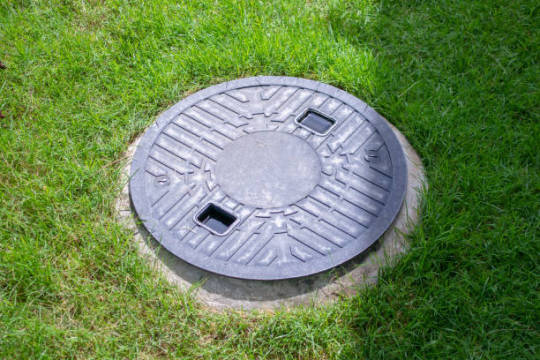
Septic tanks are a necessary part of many homes, and proper care and maintenance are essential for keeping them running smoothly. Unfortunately, many people do not know how to properly take care of their septic system, which can lead to various problems. This article will discuss septic tank care and maintenance basics to keep your system running optimally. Browse through https://plumbingtechie.com website if you need specifics information concerning septic system.
What Is a Septic System, and What Does It Do?
A septic system is a privately owned, on-site wastewater treatment system. It typically consists of a tank and a drain field. Wastewater from your home flows into the tank, where bacteria treat it. The treated effluent then flows into the drain field, where soil filters purify it.
What Are the Most Common Problems with Septic Systems?
It is important to note that improper care and maintenance of septic systems are the most common cause of problems. These include:
Clogged Filters
When the filters in your septic system become clogged, it can cause the system to back up and overflow. This can lead to unsanitary conditions and flooding. It can also be expensive to fix a clogged septic system.
Mechanical Problems
If the pump or other mechanical components of your septic system fail, your system may malfunction. This can lead to untreated wastewater being discharged into the environment. Make sure your septic system is in good working condition by having a professional inspect it.
Maintaining Your Septic Tank
Proper care and maintenance is the best way to maintain your septic system. This includes:
Pumping your septic Tank Regularly
Pumping your septic tank regularly is one of the most important things you can do. Depending on the size of your tank and the number of people in your household, you may need to pump it every one to three years.
While this may seem like a hassle, it's a small price to prevent your septic system from failing. Solid waste can build up in the tank without regular pumping and eventually clog the drain field. This can cause sewage to back into your home, leading to costly repairs.
Using Water Efficiently
If you use more water than your septic system can handle, it will not be able to treat all the wastewater before it is appropriately discharged. As a result, you may see sewage backing up into your home or yard or notice that your drains are slow or clogged.
To avoid overloading your septic system, use water efficiently. Turn off the water while brushing your teeth, fix leaks as soon as possible, and spread laundry throughout the week. You should also avoid using features like sprinklers and hoses that use lots of water simultaneously. Using water wisely can help keep your septic system running smoothly for years to come.
Avoiding Harmful Chemicals
youtube
You can keep your septic system in top shape by avoiding harmful chemicals. Many household cleaners, bleach, and even some toilet paper contain chemicals that can damage the bacteria in your septic tank that break down waste. As a result, these chemicals can build waste, clogs, and even sewage backups.
To protect your septic system, only use cleaning products that are safe for septic systems and be sure to dispose of any harmful chemicals properly. You can also help maintain your septic system by regularly inspecting and pumping it.
Inspecting Your System Regularly
It is the best way to keep your septic system in top condition. Inspections should be done at least once a year and more often if you have many people using your system or if there are any signs of problems.
Conclusion
Septic systems are often out of sight and mind until there is a problem. Routine maintenance is essential to avoid costly repairs and ensure the system works correctly. Pump out your septic tank every 3-5 years and have your septic system inspected by a professional. Homeowners should also know what they can and cannot put down their drains.
2 notes
·
View notes
Text
shower saga update:
landlord came over and even his compressed air monstrosity wasn't enough to pump my sewage back down the drain so he's calling maintenance
we're off
2 notes
·
View notes
Text
Comprehensive Guide to Septic Tank Cleaning, Waste Oil Recycling, and Used Oil Recycling
Septic tank cleaning, waste oil recycling, and used oil recycling are crucial processes for maintaining environmental health, preventing contamination, and ensuring the longevity of infrastructure. This article delves into the importance of these services, the processes involved, and the benefits they bring to individuals and communities. Visit Clarence Valley Septics for more information and professional services.
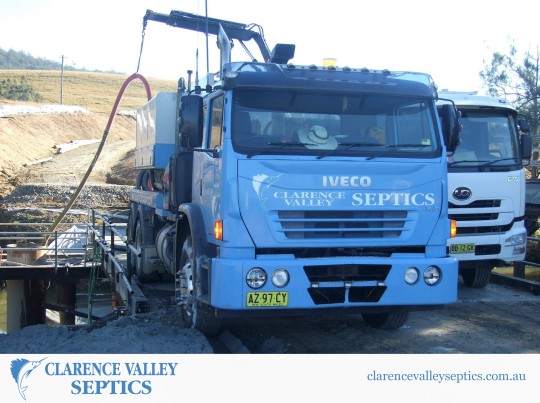
Septic Tank Cleaning
Understanding Septic Systems
Septic systems are essential for managing household wastewater in areas without centralized sewage systems. A typical septic system comprises a septic tank and a drain field. Wastewater from the home flows into the septic tank, where solids settle at the bottom, forming sludge, and fats, oils, and grease float to the top as scum. The remaining liquid effluent flows out into the drain field for further filtration and absorption into the soil.
Importance of Regular Septic Tank Cleaning
Regular septic tank cleaning is vital to prevent system failure, environmental contamination, and health hazards. Over time, sludge and scum accumulate in the tank, reducing its capacity and efficiency. If not cleaned periodically, the tank can overflow, leading to sewage backups in the home, unpleasant odors, and costly repairs.
The Cleaning Process
Inspection: A thorough inspection of the septic system is conducted to assess its condition and determine the cleaning requirements.
Pumping: A vacuum truck is used to pump out the accumulated sludge and scum from the tank.
Cleaning: The tank is cleaned, removing any remaining residue and ensuring all components are functioning correctly.
Disposal: The pumped waste is transported to a designated treatment facility for proper disposal and treatment.
Benefits of Septic Tank Cleaning
Prevents System Failure: Regular cleaning helps avoid costly repairs and replacements by maintaining the system's efficiency.
Protects Health: Properly maintained septic systems prevent sewage backups, reducing the risk of exposure to harmful pathogens.
Environmental Protection: Prevents untreated sewage from contaminating groundwater and local waterways.
Increases Longevity: Regular maintenance extends the lifespan of the septic system, providing long-term savings.
Waste Oil Recycling
Understanding Waste Oil
Waste oil refers to any petroleum-based or synthetic oil that has become unsuitable for its original purpose due to contamination with impurities, such as dirt, metal particles, or chemicals. Common sources of waste oil include automotive engines, industrial machinery, and cooking processes.
Importance of Waste Oil Recycling
Recycling waste oil is crucial for environmental protection and resource conservation. Improper disposal of waste oil can lead to soil and water contamination, posing serious health risks to humans and wildlife. Recycling helps mitigate these risks and reduces the demand for new oil production, conserving natural resources.
The Recycling Process
Collection: Waste oil is collected from various sources, such as automotive repair shops, factories, and restaurants.
Transport: The collected waste oil is transported to a recycling facility in specially designed containers.
Testing: The waste oil undergoes testing to determine its composition and suitability for recycling.
Recycling: The recycling process involves removing contaminants through filtration, distillation, and other treatment methods.
Re-refining: The purified oil is re-refined into usable products, such as lubricants, fuel oil, and raw materials for new oil products.
Benefits of Waste Oil Recycling
Environmental Protection: Prevents soil and water contamination by diverting waste oil from landfills and illegal dumping.
Resource Conservation: Reduces the demand for new oil production, conserving natural resources and reducing greenhouse gas emissions.
Economic Savings: Recycling waste oil is cost-effective compared to producing new oil, offering financial savings for industries and consumers.
Energy Efficiency: Re-refining waste oil uses less energy than producing oil from crude, promoting energy efficiency.
Used Oil Recycling
Understanding Used Oil
Used oil is any oil that has been used and subsequently contaminated with impurities, making it unsuitable for further use in its original application. This includes motor oil, hydraulic oil, and transmission fluid.
Importance of Used Oil Recycling
Recycling used oil is essential for protecting the environment and conserving valuable resources. Improper disposal of used oil can lead to severe environmental damage, including soil and water pollution. Recycling helps mitigate these risks and promotes sustainable practices.
The Recycling Process
Collection: Used oil is collected from various sources, including automotive service centers, industrial facilities, and households.
Transport: The collected used oil is transported to a recycling facility in appropriate containers.
Testing: The used oil undergoes testing to determine its suitability for recycling and to identify contaminants.
Recycling: The recycling process involves removing contaminants through filtration, distillation, and other treatment methods.
Re-refining: The purified oil is re-refined into usable products, such as lubricants, fuel oil, and raw materials for new oil products.
Benefits of Used Oil Recycling
Environmental Protection: Prevents soil and water contamination by diverting used oil from landfills and illegal dumping.
Resource Conservation: Reduces the demand for new oil production, conserving natural resources and reducing greenhouse gas emissions.
Economic Savings: Recycling used oil is cost-effective compared to producing new oil, offering financial savings for industries and consumers.
Energy Efficiency: Re-refining used oil uses less energy than producing oil from crude, promoting energy efficiency.
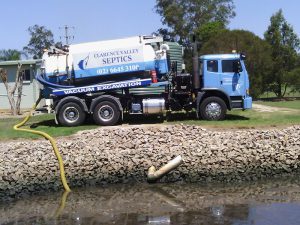
Conclusion
Septic tank cleaning, waste oil recycling, and used oil recycling are essential services for maintaining environmental health, preventing contamination, and conserving resources. Regular septic tank cleaning ensures the efficient operation and longevity of septic systems, protecting public health and the environment. Waste oil and used oil recycling prevent pollution, conserve resources, and promote sustainable practices.
By understanding the importance and benefits of these processes, individuals and industries can contribute to a cleaner, healthier, and more sustainable future. For professional services and expert guidance, visit Clarence Valley Septics.
Call to Action Ensure your septic system and oil waste are properly managed by contacting Clarence Valley Septics for reliable and professional services. Protect your property, health, and the environment by prioritizing regular maintenance and recycling efforts. Visit Clarence Valley Septics to learn more and schedule your service today
#septic tank cleaning#waste oil recycling#used oil recycling#vacuum excavation#vacuum excavation australia#waste management chemical disposal#grease trap cleaning
0 notes